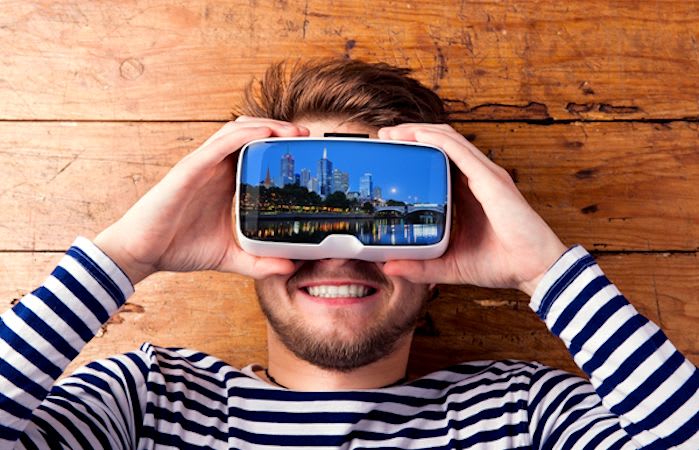Melburnians flock to virtual reality and property marketers are taking notice
There is rising consumer appetite for virtual reality in Australia and property marketers are starting to pay attention. As of this writing, Google Trends has given Melbourne a score of 100 for ‘Regional Interest’ for the search-term “Virtual Reality”.
What exactly does a score of 100 mean? Well, explaining Google Trends data can be a little tricky but a rank of 100 effectively means that proportionately, people in Melbourne are searching for “Virtual Reality” more than any other city in the world with Sydney coming in a close second with a score of 96.
Regional trends are constantly fluctuating but it appears that Melburnians are among the most highly engaged people in the world right now when it comes to Virtual Reality.
One reason why VR is rapidly rising in popularity is its accessibility. Anyone can now download an app on their smartphone and experience Virtual Reality content with nothing more than an inexpensive Google Cardboard Virtual Reality viewer.
If you have one of the latest Samsung Galaxy phones, you can go a step further and pick up a Samsung Gear VR for under $160 and experience the world’s best mobile VR headset right now. This accessibility combined with a great user experience makes mobile VR a very powerful tool for sales agents who can use it to place a person ‘inside’ a building or environment before it has been built.
A number of savvy property developers have taken note of this trend and are investing heavily in the technology. Innovative property developers like SP Projects and Future Estate have created a number of fully immersive, photo-real architectural visualisations to showcase developments such as Windsor & Co and One Coburg Quarter.
New developments, like our Coburg Quarter project, are really raising the bar in terms of its quality and design-led architecture. Until recently though, we’ve had to rely on renders and floorplans to communicate the many unique aspects of our projects.
Now with the advent of Liminal 360’s 3D virtual reality technology we can actually show our purchasers the quality of our projects in a really tactile, expressive way.
Ben Anderson, Founder and Managing Director, Future Estate
Developer branded Google Cardboards are an easy way to share mobile VR experiences and are always a huge hit at launch events, expos or as gifts to prospective investors; they are also far less likely to be thrown out or misplaced in a sea of glossy brochures.
Mobile VR is an incredible tool to sell off-the-plan properties. Aside from the millions of Google Cardboards sold globally, this year Samsung is expected to sell around five million Gear VRs, but the number of prospective property investors using mobile VR is about to get much, much bigger.
Google plans on making mobile VR operate at “Android scale” and is launching the recently announced Daydream platform this spring. Working with all the major phone manufacturers to create smartphones optimised for VR, Google plans to introduce “hundreds of millions” of users to mobile VR within the next couple of years.
Property marketers have also been paying attention to the release of the Oculus Rift and HTC Vive earlier this year and Liminal 360 is using this technology to bring to life not only individual houses or apartments but entire masterplanned communities using the HTC Vive.
We are very excited about using the HTC Vive to enable home buyers to visit a developer’s display suite and walk around and view an entire community contextually and at a range of different scales.
Nick Busietta, Co-Founder and Managing Director, Liminal 360
Tethered to a powerful PC, the HTC Vive allows a person to walk around in a Virtual Reality environment as they physically walk around in up to 4.5 x 4.5 meters of mapped out floorspace – such as in a ‘real world’ display suite. The user can also actively interact with the virtual environment with a pair of wireless, handheld controllers making the Vive experiences fun and strikingly immersive.
With all these exciting Virtual Reality experiences being built right here in Melbourne, it’s not surprising that there is such a buzz around town!
Daimian Moratti is CEO of Melbourne-based virtual reality company Liminal 360.
